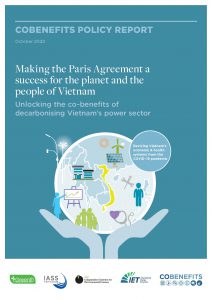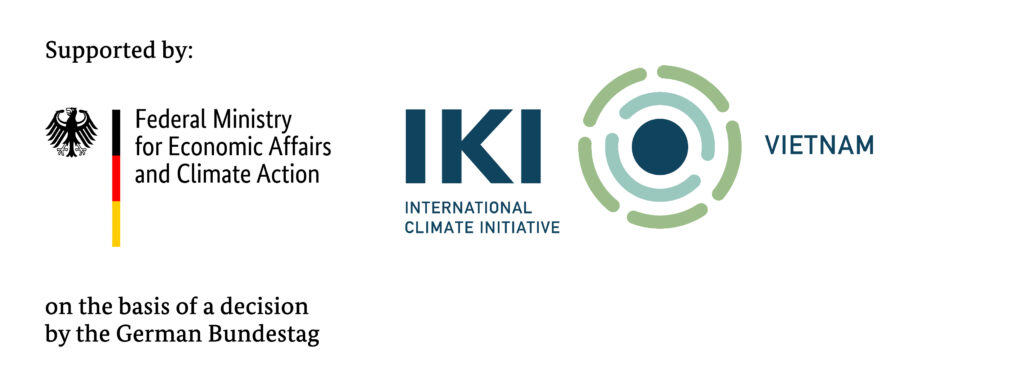
The social and economic opportunities presented by the global energy transformation are spurring the growth of renewable energy (RE) generation in many countries. So-called co-benefits also shape the political discourse in Viet Nam. In its updated NDC, the government of Viet Nam suggests multiple co-benefits of decarbonising the energy sector. The COBENEFITS project has published a new policy report, compiling key findings of its Viet Nam Assessment series. The report quantifies the co-benefits of renewables in view of future-oriented employment, energy access, development in rural areas, air quality and health, and suggests high-impact actions for policy makers to seize these co-benefits.
Renewable energy solutions are sustainable and cost-effective alternatives for electrifying remote rural areas and communities. Additionally, renewable energies can significantly boost employment. Wind and solar power tend to be more labour intensive and could employ twice as many people as the coal sector. Future policies should consider the demand for qualified workers and develop a joint strategy for vocational training and university programmes for the renewable energy sector.
The transition to renewable energies can significantly improve the air quality. Consequently, RE can help to reduce negative health impacts and contribute to reducing costs in Vietnam’s health system. Energy planning should consider co-benefits for air quality and health.
The Policy Report has been realised in the context of the COBENEFITS project. The COBENEFITS project is coordinated by the Institute for Advanced Sustainability Studies (IASS). It cooperates with national authorities and knowledge partners in countries across the globe to help them mobilise co-benefits of early climate action in their countries.
You can download the COBENEFITS Country Report Vietnam here
Video Summary with key findings
For more information: www.cobenefits.info
